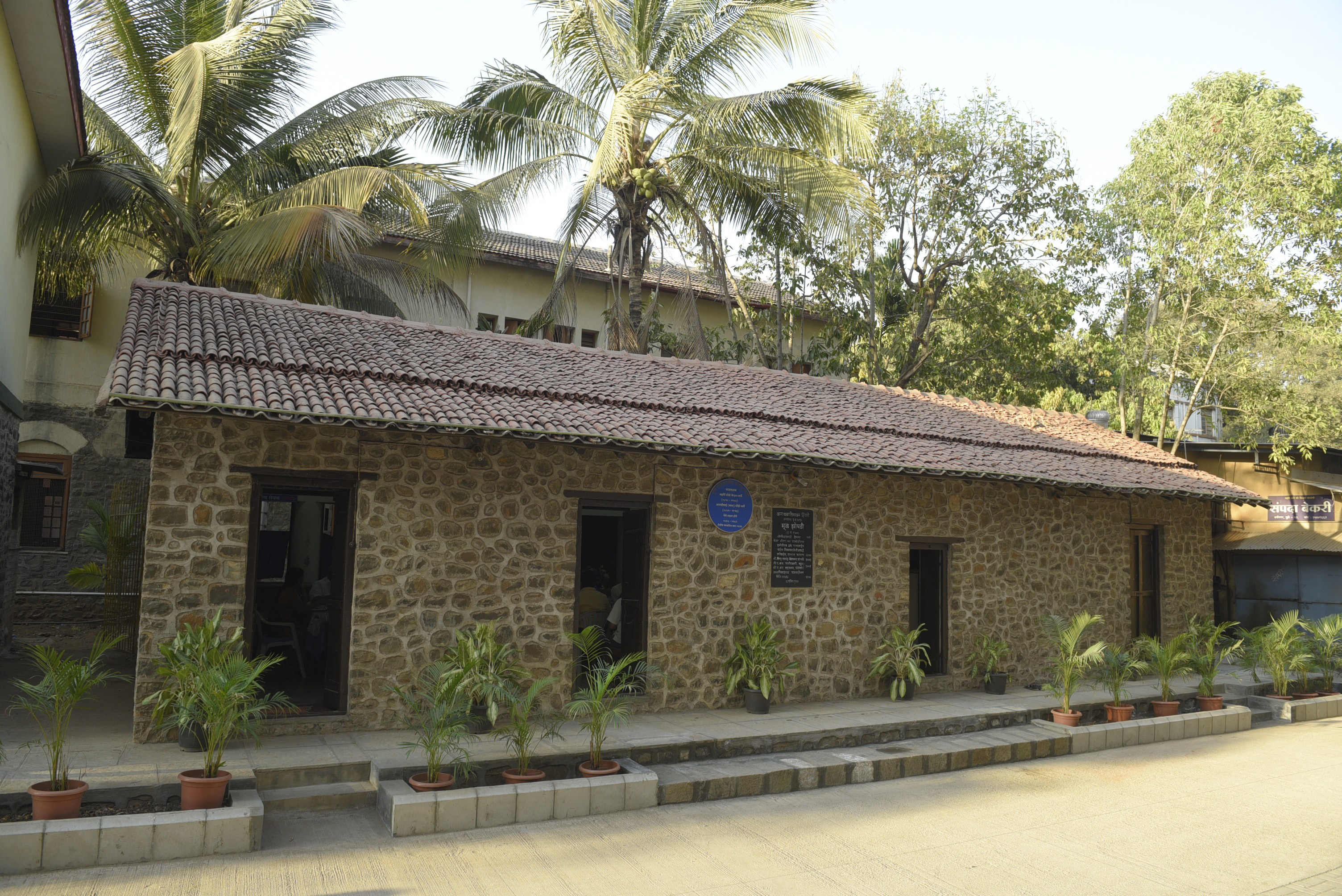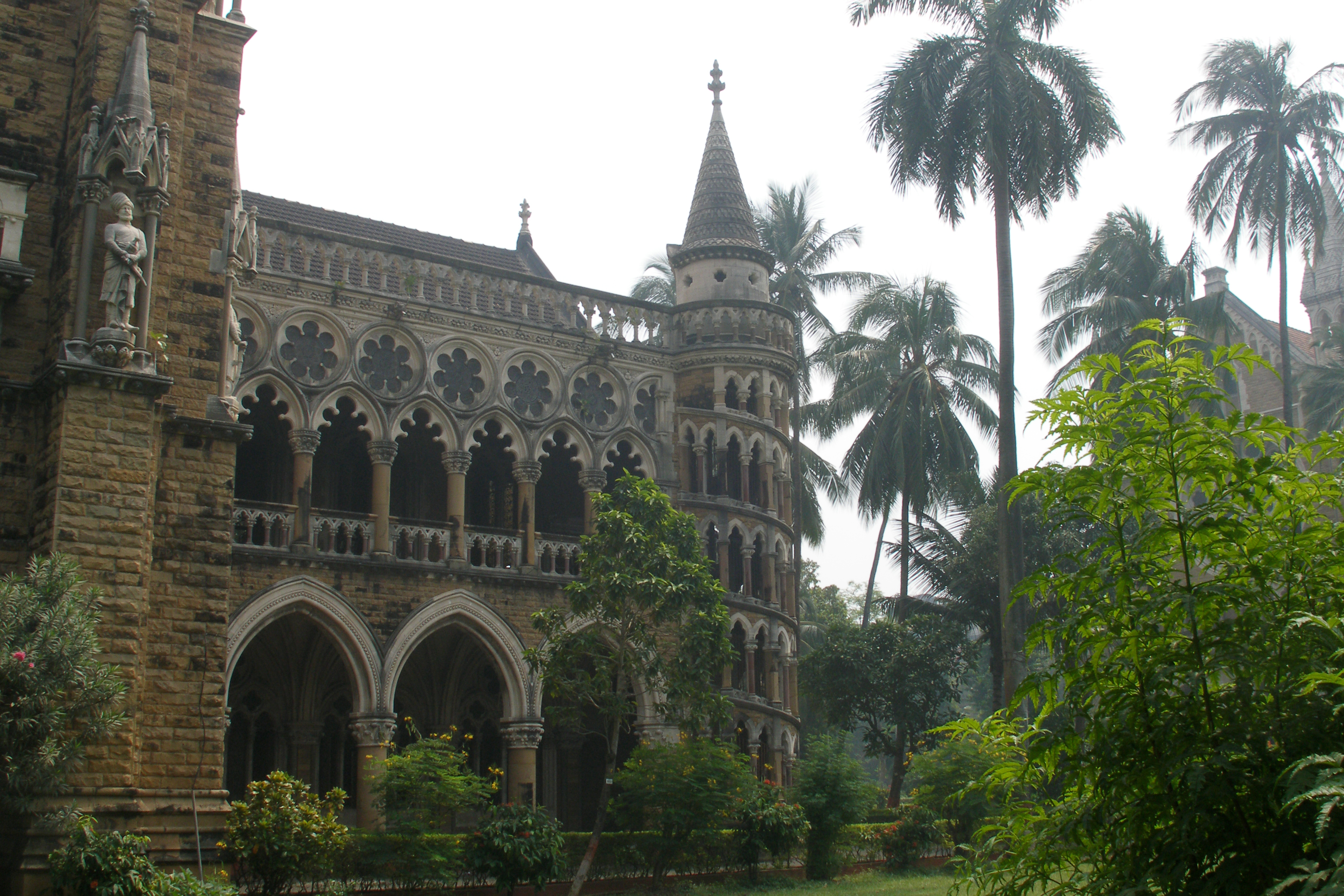|
Dhondo Keshav Karve
'' Dhondo Keshav Karve (18 April 1858 – 9 November 1962), popularly known as Maharshi Karve, was a social reformer in India in the field of women's welfare. He advocated widow remarriage and he himself married a widow. Karve was a pioneer in promoting widows' education. He founded the first women's university in India - SNDT Women's University . The Government of India awarded him with the highest civilian award, the Bharat Ratna, in 1958, the year of his 100th birthday.He organized a conference against the practice of devdasi. He started 'Anath balikashram' an orphanage for girls. His intention was to give education to all women and make them stand on their own feet. Through his efforts, the first women university was set up in 20th century. The appellation ''Maharshi'', which the Indian public often assigned to Karve, means "a great sage". Early life Dhondo Keshav Karve was born on 18 April 1858, at Sheravali, in Ratnagiri district of Maharashtra. He belonged to a lower ... [...More Info...] [...Related Items...] OR: [Wikipedia] [Google] [Baidu] |
Maharshi
Maharishi is a Sanskrit word, written as "महर्षि" in Devanagari (formed from the prefix mahā- meaning "great" and r̥ṣi - sage, poet or a singer of sacred hymns), indicating members of the highest order of ancient Indian sages, popularly known in India as "seers," i.e. those who engage in research to understand and experience (and therefore know) nature and its governing laws. Description and usage ''Maharshi'' may also refer to "seers" or "sages" in India.Brewer's Dictionary of Phrase and Fable (2009) Retrieved November 9, 2011 The term became popular in English literature "sometime before 1890" and was first used in 1758.Websters Online Dictionary with Multilingual Thesaurus Translation Retrieved November 2011 Alternate me ... [...More Info...] [...Related Items...] OR: [Wikipedia] [Google] [Baidu] |
Vasant Kanetkar
Vasant Shankar Kanetkar (20 March 1922 – 31 January 2000) was an Indian Marathi-language playwright and novelist from Maharashtra. He was born in the town of Rahimatpur in Satara District, Maharashtra. His father, Shankar Keshav Kanetkar, was a poet who wrote poetry under the pen name ''Kavi Girish'' and was a founding member of a circle of poets named ''Ravikiran Mandal''. Vasant Kanetkar was educated in Pune and Sangli. After passing M.A. exam in 1948 from Sangli, he joined as a lecturer in Nashik in 1950. He received wide admiration from the audience after his play 'Raigadala Jevha Jag Yete' (रायगडाला जेव्हा जाग येते). He kept the Marathi commercial theatre vibrant and live for more than two decades. Five of his plays received best play award of the year given by Maharashtra State Government. In 1966, Kanetkar received a Filmfare Award for Best Story for the Hindi movie Aansoo Ban Gaye Phool, which was an adaptation of Ashroonchi ... [...More Info...] [...Related Items...] OR: [Wikipedia] [Google] [Baidu] |
Irawati Karve
Irawati Karve (15 December 1905 – 11 August 1970) was a pioneering Indian sociologist, anthropologist, educationist and writer from Maharashtra, India. She was one of the students of G.S. Ghurye, founder of Indian Sociology & Sociology in India. She has been claimed to be the first female Indian Sociologist. Early life and education Irawati Karve was born on 15 December 1905 to a wealthy Chitpavan Brahmin family and was named after the Irrawaddy River in Burma where her father, Ganesh Hari Karmarkar, was working for the Burma Cotton Company. She attended the girls boarding school Huzurpaga in Pune from the age of seven and then studied philosophy at Fergusson College, from which she graduated in 1926. She then obtained a Dakshina Fellowship to study sociology under G. S. Ghurye at Bombay University, obtaining a master's degree in 1928 with a thesis on the subject of her own caste titled ''The Chitpavan Brahmans — An Ethnic Study''. Karve married Dinkar Dhon ... [...More Info...] [...Related Items...] OR: [Wikipedia] [Google] [Baidu] |
Maharshi Karve Stree Shikshan Samstha
Maharshi Karve Stree Shikshan Samstha is an Indian education society engaged in women's education. It was set up by Dhondo Keshav Karve in 1896 as Hingane Stree Shikshan Samstha. History In 1896, Dhondo Keshav Karve founded an institution in a village named Hingne near Pune city. Karve dedicated his life for the humanitarian objective which was upliftment of women which formed the major section of socially downtrodden during that period On 14 June 1896, Karve started "Home for widows" along with the school for widows in a small village named Hingne in Pune. The Home for Widows was then named "Hingne Stree Shikshan Samstha" and the school was named "Mahilashram High School". Later the institution was renamed "Maharshi Karve Stree Shikshan Samstha". The institution has expanded and is running 60 educational units having diversified branches all over Maharashtra with units located at Pune, Wai, Ratnagiri, Nagpur, Kamshet, etc. All these units are meant only for girls. The institut ... [...More Info...] [...Related Items...] OR: [Wikipedia] [Google] [Baidu] |
University Of Mumbai
The University of Mumbai is a collegiate university, collegiate, State university (India), state-owned, Public university, public research university in Mumbai. The University of Mumbai is one of the largest universities in the world. , the university had 711 affiliated colleges. Ratan Tata is the appointed head of the advisory council. History In accordance with "Wood's despatch", drafted by Charles Wood, 1st Viscount Halifax, Sir Charles Wood in 1854, the University of Bombay was established in 1857 after the presentation of a petition from the Bombay Association to the British colonial government in India. The University of Mumbai was modelled on similar universities in the United Kingdom, specifically the University of London. The first departments established were the Faculty of Arts at Elphinstone College in 1835 and the Faculty of Medicine at Grant Medical College in 1845. Both colleges existed before the university was founded and surrendered their degree-granting priv ... [...More Info...] [...Related Items...] OR: [Wikipedia] [Google] [Baidu] |
Pune University
Savitribai Phule Pune University (SPPU), formerly the University of Poona, is a collegiate public state university located in the city of Pune, India. It was established in 1949, and is spread over a campus in the neighbourhood of Ganeshkhind. The university houses 46 academic departments. It has about 307 recognized research institutes and 612 affiliated colleges offering graduate and under-graduate courses. Savitribai Phule Pune University Ranked 12th NIRF Ranking in 2022 History The University of Pune was established on 10 February 1949 under the Pune University Act passed by the Bombay legislature in 1948. M. R. Jayakar became its first vice-chancellor. Its first office was started from the Nizam Guest House, which is part of Bhandarkar Oriental Research Institute on Law College Road. The university was operated at Nizam Guest House until 1 June 1949. Its current building was originally called the Governor House. As its name suggests, it was the seasonal retreat of the ... [...More Info...] [...Related Items...] OR: [Wikipedia] [Google] [Baidu] |
Banaras Hindu University
Banaras Hindu University (BHU) IAST: kāśī hindū viśvavidyālaya IPA: /kaːʃiː hɪnd̪uː ʋɪʃwəʋid̪jaːləj/), is a collegiate, central, and research university located in Varanasi, Uttar Pradesh, India, and founded in 1916. The university incorporated the Central Hindu College, founded by Indian Home Rule-leaguer and Theosophist, Annie Besant in 1898. After Besant and her associates were marginalized, the university was established by Madan Mohan Malaviya with the financial support of the maharaja of Dharbhanga Rameshwar Singh, the maharaja of Benares Prabhu Narayan Singh, and the lawyer Sunder Lal. With over 30,000 students, and 18,000 residing on campus, BHU is the largest residential university in Asia. The university is one of the eight public institutions declared as an Institute of Eminence by the Government of India. BHU has often been referred by different names throughout the history and present. Some of the English names include Banaras Univers ... [...More Info...] [...Related Items...] OR: [Wikipedia] [Google] [Baidu] |
Doctor Of Letters
Doctor of Letters (D.Litt., Litt.D., Latin: ' or ') is a terminal degree in the humanities that, depending on the country, is a higher doctorate after the Doctor of Philosophy (Ph.D.) degree or equivalent to a higher doctorate, such as the Doctor of Science (Sc.D. or D.Sc.). It is awarded in many countries by universities and learned bodies in recognition of superior accomplishment in the humanities, original contributions to the creative or cultural arts, or scholarship and other merits. It may be conferred as an earned degree upon the completion of a regular doctoral course of study, usually including the development and defense of an original dissertation, or may be conferred as an earned higher doctorate after the submission and academic evaluation of a portfolio of sustained scholarship, publications, research, or other scientific work of the highest caliber. In addition to being awarded as an earned degree, this doctorate is also widely conferred ''honoris causa'' to reco ... [...More Info...] [...Related Items...] OR: [Wikipedia] [Google] [Baidu] |
Amol Palekar
Amol Palekar (born 24 November 1944) is an Indian actor, director and producer of Hindi and Marathi cinema. Career Palekar studied fine arts at the Sir JJ School of Arts, Mumbai, and commenced his artistic career as a painter. As a painter, he had seven one-man exhibitions and participated in many group shows. However, Palekar is better known as a stage and film actor. He has been active in the avant garde theatre in India in Marathi and Hindi theatre as an actor, director and producer since 1967. His contribution to the modern Indian theatre is often overshadowed by his popularity as a lead actor in Hindi films. As a film actor, he was most prominent in the 1970s. His image as a "boy next door" contrasted with the larger-than-life heroes prevalent at that time in Indian cinema. He received one Filmfare award and six State awards as Best Actor. His performances in regional language films in Marathi, Bengali, Malayalam and Kannada fetched him critical acclaim as well. He decided ... [...More Info...] [...Related Items...] OR: [Wikipedia] [Google] [Baidu] |
Dhyaas Parva
''Dhyaas Parva'' ( ''An Era of Yearning'') is a 2001 Indian Marathi language biographical drama film about Raghunath Dhondo Karve, written bChitra Palekarand directed by Amol Palekar. The film stars Kishor Kadam in the lead role, with Seema Biswas, Atul Kulkarni, Sachin Khedekar, and Varsha Usgaokar. The film won the National Film Award for Best Film on Family Welfare. Plot Cast * Kishor Kadam as Raghunath Karve * Seema Biswas as Malati Karve * Atul Kulkarni as Gopal Krishna Gokhale * Sachin Khedekar as Wrangler Paranjpe * Varsha Usgaokar as Shakuntala Paranjpe * Sanjay Mone as Babasaheb Ambedkar Nishith Dadhichas Congress Activist * Mohan Gokhale * Shriram Lagoo Dr.Shriram Lagoo (16 November 1927 – 17 December 2019) was an Indian film and theatre actor, in Hindi and Marathi, in addition to being an ENT Surgeon. He was known for his character roles in films. He acted in over 250 films including Hind ... * Samdeep Mehta * Minal Paranjape * Sanjay Pawar Re ... [...More Info...] [...Related Items...] OR: [Wikipedia] [Google] [Baidu] |






